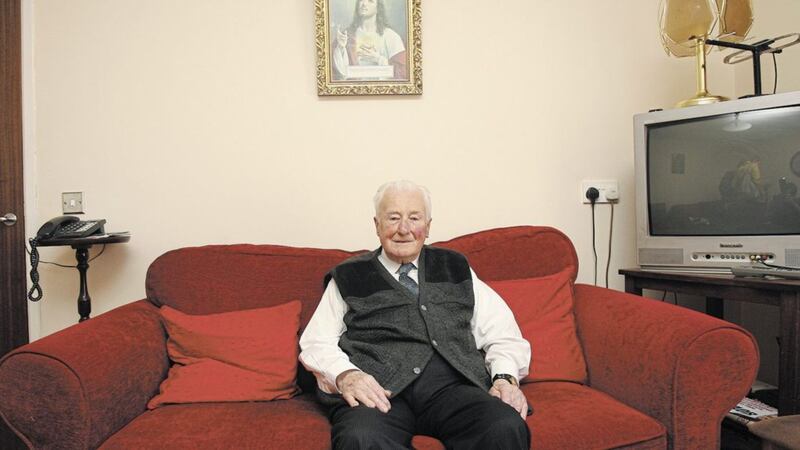Many of the ‘old brigade’ are dying off.
I didn’t know Kevin McKenna, the former IRA chief of staff who was buried last week. Billy McKee, on the other hand, became my father for a time or two.
We used my father’s driving licence to get him across the border. It wasn’t difficult because he looked a good bit like my father. I drove him across on those occasions. He was going to meet with representatives of Her Majesty’s Government.
I was a young priest at the time and Billy was very respectful. But even back then in the mid-seventies he was known as the hardest man in the Provos and a daily Mass goer. He was the incarnation of that paradox between physical force Irish republicanism and the ill formed non-violence tenets of Catholicism. On the other hand, one of his obituaries described him as a pragmatist, giving examples of him disagreeing or acting contrary to IRA policy and being stood down from his command.
He was on the army council in 1975. Along with Ruairí Ó Brádaigh and others, he met, over a period of six months, with representatives of the British government. The IRA demands to the British were formulated in a document called Éire Nua. It was a substantial document containing some eccentric and some innovative propositions. The central demand was that the British would declare a date on which they would leave Ireland and that a federal system of government would be put in place. Each province would have its devolved assembly with participation in a Dáil which would have its headquarters, not in Dublin but in Athlone.
Read more: A profile of Provisional IRA leader Billy McKee
The British government wouldn’t be expected to leave Ireland immediately but a promised date of withdrawal in the future would be adequate to bring about a cessation of violence. The federal structure of government would include an assembly/executive in each province. Ulster, of course, would be the nine counties and not the hated six counties. The document proclaimed that the Ulster assembly would be: “an Ulster Parliament for the Ulster people. The Unionist-orientated people of Ulster would have a working majority within the Province and would therefore have considerable control over their own affairs. That power would be the surest guarantee of their civil and religious liberties”.
In the light of the current debate about Brexit, Irish unity, a border poll and demographic change, Éire Nua is an interesting and informative document. It isn’t as eccentric as it might initially appear. Firstly, it is political. It addresses both social and constitutional matters. Its very existence challenges the assumed purity of the small number of physical force Irish republicans still extant. No matter how pure, the journey from violence to politics is inevitable. Secondly, the central demands of the document are not a thousand miles from the political realities that Brexit has stirred on this island. It is arguable that a border poll in the short to medium future is a more solid political guarantee than a promise made by a government who might or might not fulfil it under a future administration. The Ulster parliament, as outlined in the document, is much more generous to the unionist community than anything being referenced now.
Billy McKee is an icon to the small and fragmented groups of republicans who believe that violence is the only way to force the British government out of Ireland. He accused some of his former colleagues of betraying the cause. But he himself sat down to negotiate with the British twenty years before the Kevin McKennas of this world. He was also part of the leadership that called off the IRA border campaign of the 1960s because it had little or no popular support.
Ireland, north and south, is readying itself for a conversation about the future of this island. The moral and political justification for violence is at an end.
From our archives:
Political process will not deliver a united Ireland - Billy McKee (2016)









